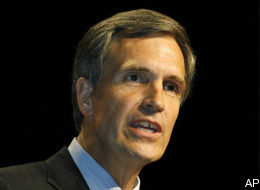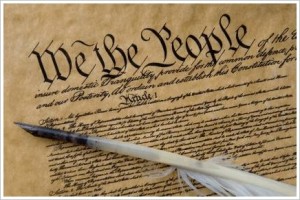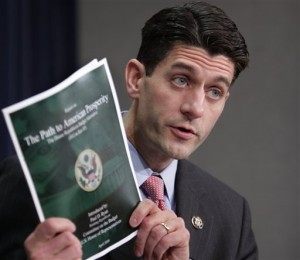 As a former Member of Congress, I am no longer asked how I will vote; instead, the question I get almost every day is how did Congress become so dysfunctional? The second, less interesting question: Aren’t you glad you’re not there?
As a former Member of Congress, I am no longer asked how I will vote; instead, the question I get almost every day is how did Congress become so dysfunctional? The second, less interesting question: Aren’t you glad you’re not there?
The generalized anger at “Washington” is misplaced. Not all parties are equally at fault. While political posturing is apparent, it’s not all about politics. Ideas matter more than most commentators will acknowledge, and ideas that morph into convictions impervious to evidence are the root of our distemper.
Tax cuts pay for themselves. We’ll be welcomed as liberators. Climate science is a hoax—or at least not “proven.” None of these claims was or is true; the evidence against them is overwhelming. But they remain for most congressional Republicans absolute convictions. Why? I believe they are rooted in a profound aversion to collective action by Americans through our governments.
I served on the House Budget Committee for four years listening to Paul Ryan, Jeb Hensarling and my other Republican colleagues rail against “spending” (in the abstract) and promote the idea that tax cuts—in all times and circumstances—drive economic growth. The economists who testified at our hearings took a different view; they emphasized the importance in the long run of keeping revenues and expenditures in some sort of balance. Those were views not well received during the tax cutting frenzy of the Bush Administration.
The Tea Party Republicans are not promoting different ideas than their more senior Republican colleagues. They both disdain government, but the Tea Partiers reject political compromise as well.
How did we get here? George W. Bush’s signature line for his massive 2001 tax cut was just one step in the promotion of self-interest over common purpose that is weakening America economically and politically. “It’s not the Government’s money, it’s your money.” Right wing Republicans argue that federal taxes “diminish human freedom.” That world view, promoted with increasing intensity and success for over 30 years, leaves little room for a pragmatic debate about how governments can improve the well-being of the people.
Americans don’t need to be encouraged to think of themselves first. We all believe in working hard and becoming self-reliant. However, the integrated, complex global relationships of the 21st century make teamwork essential for success. Bookstores are filled with books on team-building in the corporate environment. Successful professional sports teams create an ethic of the team comes first. Families, churches, non-profits, and even political parties thrive when the members work together.
 The radical individualism that has taken over the Republican Party (though not all Republicans) is inconsistent with the fundamental belief that the purpose of democratic government is the common good, the well-being of all the people. Those who adhere to an “originalist” interpretation of the Constitution would do well to remember its first three words, “We the People.”
The radical individualism that has taken over the Republican Party (though not all Republicans) is inconsistent with the fundamental belief that the purpose of democratic government is the common good, the well-being of all the people. Those who adhere to an “originalist” interpretation of the Constitution would do well to remember its first three words, “We the People.”
With revenues to the federal government as a percentage of GDP at lows not seen in decades, with a growing—and aging—population, with investments in education and infrastructure necessary to keep America competitive, the position that our unacceptable annual deficits should be closed only by spending cuts makes little sense. But it appears to have prevailed for the moment.
Our fundamental (and now polarized) ideas about individualism and civic engagement drive our endless debate about the “role of government.” Our dysfunctional Congress is the product of not valuing both in equal measure.










Leave a Reply